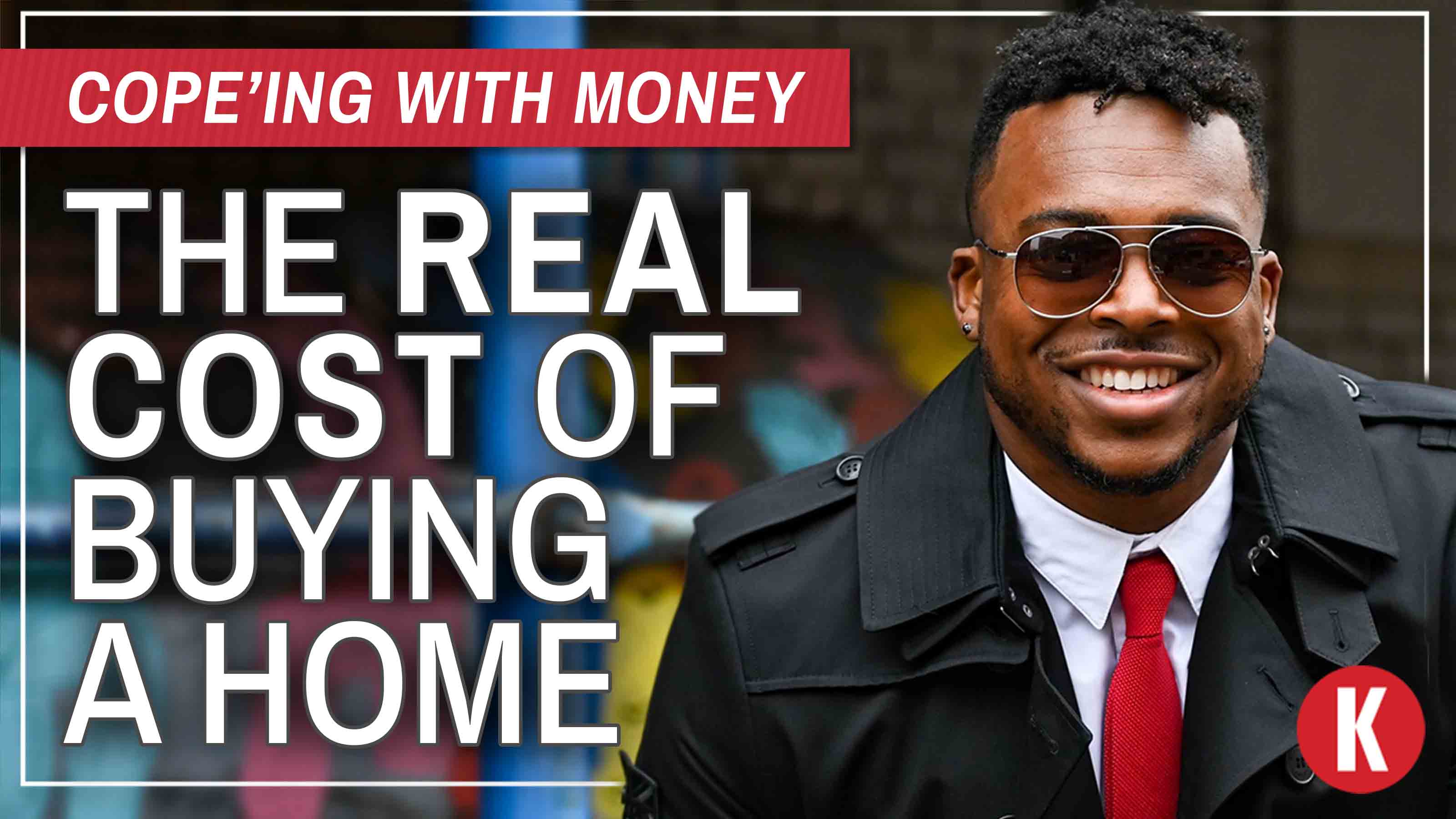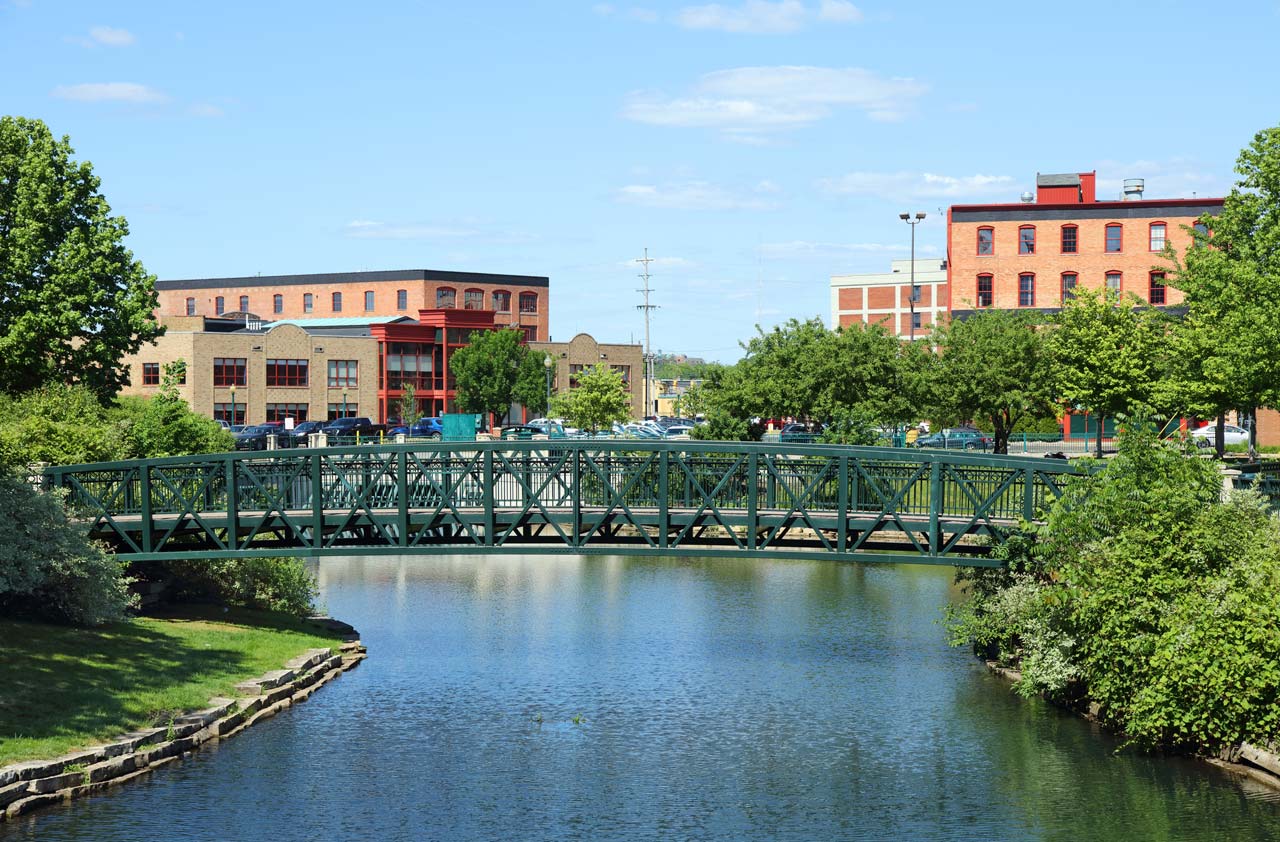The "Real" Cost of Buying a Home
Atlanta Falcons linebacker and Kiplinger contributing editor Brandon Copeland discusses the laundry list of extra costs involved in buying a home.


Profit and prosper with the best of Kiplinger's advice on investing, taxes, retirement, personal finance and much more. Delivered daily. Enter your email in the box and click Sign Me Up.
You are now subscribed
Your newsletter sign-up was successful
Want to add more newsletters?

Delivered daily
Kiplinger Today
Profit and prosper with the best of Kiplinger's advice on investing, taxes, retirement, personal finance and much more delivered daily. Smart money moves start here.

Sent five days a week
Kiplinger A Step Ahead
Get practical help to make better financial decisions in your everyday life, from spending to savings on top deals.

Delivered daily
Kiplinger Closing Bell
Get today's biggest financial and investing headlines delivered to your inbox every day the U.S. stock market is open.

Sent twice a week
Kiplinger Adviser Intel
Financial pros across the country share best practices and fresh tactics to preserve and grow your wealth.

Delivered weekly
Kiplinger Tax Tips
Trim your federal and state tax bills with practical tax-planning and tax-cutting strategies.

Sent twice a week
Kiplinger Retirement Tips
Your twice-a-week guide to planning and enjoying a financially secure and richly rewarding retirement

Sent bimonthly.
Kiplinger Adviser Angle
Insights for advisers, wealth managers and other financial professionals.

Sent twice a week
Kiplinger Investing Weekly
Your twice-a-week roundup of promising stocks, funds, companies and industries you should consider, ones you should avoid, and why.

Sent weekly for six weeks
Kiplinger Invest for Retirement
Your step-by-step six-part series on how to invest for retirement, from devising a successful strategy to exactly which investments to choose.
What's up, everybody? This is Brandon Copeland, aka Professor Copeland. You are now tuned in to another episode of Cope'ing With Money.
On this episode of Cope'ing With Money, we're looking at something, as usual, very near and dear to my heart, but also timely, because I'm actually doing it right now. We're talking about not just moving into a home, but figuring out the actual cost of buying a house.
You see, when we go into a car dealership, we know that there's the sticker price and the actual price. By the time you get done adding all the fees and the different costs associated with actually purchasing your car – or in this case, your house – that sticker price doesn't really add up or do it justice. Now, when purchasing a home, I get it: We all get butterflies, we're all getting excited, we're getting ready for the 'Gram, going to take some pictures with the keys in our hand, showing everybody I'm a homeowner now.
From just $107.88 $24.99 for Kiplinger Personal Finance
Become a smarter, better informed investor. Subscribe from just $107.88 $24.99, plus get up to 4 Special Issues

Sign up for Kiplinger’s Free Newsletters
Profit and prosper with the best of expert advice on investing, taxes, retirement, personal finance and more - straight to your e-mail.
Profit and prosper with the best of expert advice - straight to your e-mail.
But let's make sure we really understand the full cost of home ownership prior to purchasing.
I always tell my life one-on-one students: Peeling back the layers of the real cost of these major life decisions actually enables us to fully understand the money it takes to purchase these things confidently, as opposed to hinder us or make us feel threatened to even consider them. And while there will always be surprises, with proper planning and this video on your side, hopefully there will be no major obstacles that sink your budget when purchasing your first home.
Also, final disclaimer: Before we get into it, understand that this is just a guide. Similar to most things in life, every home is different – different shapes, different sizes, conditions, areas. So it is very tough/impossible for me to predict every single expense that your particular home purchase may incur.
But, we're going to talk about it from a high level and hopefully this guides you on a deeper conversation that you can have with the experts in your area.
Pay 20% Down If Possible
So, you've made it to the closing table. One thing we would like to be able to do if possible is be able to pay 20% down.
I know, there's a bunch of people saying, "Hey, I saw you can pay as low as 3.5% down or 0% down." I get it. Or also there's some people who say, "Hey, I can't even afford to put 20% down."
But I want to just make sure you're aware of this: If you're not able to put 20% down, you definitely need to have a detailed conversation with your lender because you will be paying private mortgage insurance, otherwise known as PMI.
Private mortgage insurance is an insurance that your lender puts onto your monthly statement that insures them in case you default on your loan. Aka: "If you don't pay, we're going to get all of our money back regardless."
The amount you pay will depend on the size of your loan and also the insurance rate. Again, this is where you need to have a great conversation with your lender because the type of loan you have will determine whether or not that PMI falls off once you reach that 20% mark of your loan payback to the lender versus whether or not that PMI sticks with you throughout the life of the loan.
Double-Check Your Closing Disclosure
Now, besides PMI, there are other things to note within your closing disclosure. There are different fees and inspections and reports that you have to pay for. Ultimately, you should always double-check these calculations within your closing disclosure.
Quick story. Years ago, my wife and I purchased our very first home. At the time, I was playing for the Detroit Lions, so I wasn't able to make it to the closing. However, my wife was there and sent me a copy of the closing disclosure prior to signing on the dotted line.
Taylor calls me: "Hey, honey, so how does everything look on the documents, does everything look right?"
This being my first time ever closing on a home and, respectfully, without our schools ever teaching us what to actually look for in these documents, I said, "Ummmm ... I don't know."
We can hope that the realtor would have flagged anything in there that should not be there. But in reality, their incentive is to get this property sold and ultimately collect their commission.
In reality, I had no idea what I was looking at within that 80-page document.
So, fast-forward to now, years later, after becoming a real estate investor, closing on multiple homes, thoroughly reviewing closing disclosures and catching multiple blemishes and errors within them, I want to make sure that you are well-armed and equipped to review these closing documents yourself.
Recognize Your Closing Fees
Some of the things you'll see within the closing disclosure are a bunch of different fees.
You have your loan origination fee, you have your appraisal fee, you have your credit report that they'll charge you for pulling. There are a bunch of different title fees, which are some of the most important fees because they actually clear the property, making sure that you can have full and complete ownership of it.
Title insurance makes sure there are no outside creditors or other lien holders that can claim ownership of the property that someone may be trying to sell to you. It ensures that the lender has hired someone to clear the title and protects them if anyone comes back and claims that they have real ownership of your home. You can also purchase an owner's title insurance policy to help protect yourself.
You'll also see a bunch of recording fees and transfer taxes, property taxes, prepaid interest and a bunch of other different fees that allow you the right to take over this property and get you paid up in full.
By the end of it, you may estimate paying anywhere from 2% to 5% of the price of the home just in additional fees.
Consider the Cost of Homeowners Insurance
Now that you understand some of the things that you may see within a closing disclosure, another thing that you need to consider when purchasing a home is homeowners insurance.
Many lenders will require you to have homeowners insurance to protect the asset. This cost will typically be added to your monthly mortgage amount. For most people, their house is the largest asset that they have. It is the biggest piece of their net worth. So we want to make sure we protect it. People talk about "securing the bag." Well, part of security is protecting that bag through insurance. So there's another cost that you'll have to incur on a monthly basis or a yearly basis, depending on how you decide to pay it off.
I know all of these costs are starting to add up, but we're not done yet.
Remember to Pay Property Taxes
Property taxes are actually another cost to factor into home ownership. Those are never going anywhere. Make sure that you understand the property taxes that you are required to pay and are ensuring that these are paid on time.
If you're using a lender like a bank and borrowing money to purchase your home, understand that taxes can be paid through escrow. If you're buying your home with cash, then you are responsible for paying those property taxes, even when the home is paid off. So please be sure not to allow those payments to slip through the cracks. You don't want to work hard to pay your home off, just to have the government take it right back from you.
Factor Interest Into Total Costs
Another thing that we need to make sure we're factoring into the cost of owning a home is interest.
What you're seeing here is a real closing disclosure of mine for a home that I've recently refinanced. My interest rate on the loan is 3.125%. However, if you look over here at the loan calculations over the life of this loan, I'll be paying about $182,474.22 in interest.
It's important to know and truly understand interest because a lot of people are walking around right now telling you how they have equity in their home. "My house has appreciated over time, and now I can go ahead and sell it for more than I paid." But, in the early years of owning a mortgage, you're going to end up paying a lot of money in interest and paying a little bit towards that principal.
So, my friend, if you're not allowing that appreciation to offset your cost to sell, then you don't actually have equity in your home; you're actually underwater.
Account for Moving Costs
So before we've even bought the house, there's a bunch of fees that we need to be aware of prior to the purchase. That sticker price has already risen. Now we're talking about the actual move-in process. Please, please, please do not underestimate the cost of actually moving into a home. Yes, you can save some money by buying lunch and gathering your friends to help move some boxes. But even that pizza costs money.
If you're going to be hiring a moving company, vet the company thoroughly. Make sure that you understand what you're paying for and make sure that you make a thorough inventory checklist of everything that you decide to move since missing furniture means more out of pocket expenses. Trust me, I'm speaking from experience.
On top of that, if you have no furniture and have to start from scratch, or even just add a piece here or there, it can get difficult to estimate the exact furniture costs that you may be incurring.
It's times like this that I truly understand why people choose to furnish their homes with that old modern style nowadays. You see, modern is not really a style at all, it's actually all you can afford after closing on the homes. It all makes sense now. We got to put that one couch in the middle of nothing, because after all these expenses, we can't afford anything else.
But in all seriousness, understanding that there will be real moving costs is important to make sure that you budget appropriately based on the type of furniture that you like.
Pay Attention to Renovations
After a much longer list than you probably expected when you clicked on this video, understanding whether or not your home that you're moving into has major renovations to be done is crucial to understanding the actual cost of owning your home.
Roofs, foundation issues and anything that actually affects the integrity of your home are crucial, because they're very costly. Other more cosmetic renovations that you may have in mind – like kitchens, flooring, and painting and landscaping – these can add up very quickly as well and change the actual cost of your home drastically if you're unprepared for it.
So make sure that you have a checklist and a budget in mind for the renovations that you plan on taking on as you move into your home.
Budget for Cost of Maintenance
Understand that there are always going to be maintenance and upkeep costs needed to keep your home working in proper order. If your home is brand new or recently renovated, those costs might be a bit lower for you. On the flip side, if your home is a bit older and considered more of a fixer upper, just be prepared to be tugging on your wallet on more of a bi-annual or annual basis.
Some people will tell you to budget about 4% of the cost of your home, or $1 to $4 per square foot of your home in maintenance costs per year. This could be a leaky faucet, a water heater that stops working or an appliance that stops working. Things like this just pop up through normal use and wear and tear in your home over time.
Also, always, always, always get a home inspection to minimize these types of surprises for a home you plan on living in.
In Closing
All the things I've talked about probably sound extremely scary when I'm listing them all in a short video; however, knowledge is power. Understanding these things allow us to budget appropriately, avoid money that's going in the trash, and ultimately make the best decision for ourselves and our families so that we can get into our homes and have those big exhale moments and enjoy our home for what it should be.
This is, for most of us, the largest purchase we will ever make, and without having this type of knowledge and understanding, you may face the same anxiety that I did years ago. But now that I know what I'm up against, I've been able to allow my budget and my finances to really afford the actual cost of my home, not just the sticker price.
With that being said, this is Cope'ing With Money. Be sure to reach out to me with any questions you may have on the home buying process. I'm always willing to share my own experiences and I'm always actively learning. In the meantime, stay safe, stay blessed, Cope'ing With Money. I'll see you next time.
Links and resources mentioned:
Profit and prosper with the best of Kiplinger's advice on investing, taxes, retirement, personal finance and much more. Delivered daily. Enter your email in the box and click Sign Me Up.

Brandon Copeland, an active, eight-year veteran NFL linebacker, has spent the past two years teaching a class he created, and nicknamed “Life 101,” at his alma mater, the University of Pennsylvania. Life 101 focuses on life’s constant money decisions so that students are better prepared for the financial realities that adulthood brings. Copeland also spends time off of the field consulting and investing in real estate. He is the co-founder of a nonprofit organization, Beyond the Basics Inc., and was the recipient of the 2020 NFLPA Alan Page Community Award, the NFLPA’s highest honor given for extraordinary dedication to service, social justice and equality. He is a member of CNBC’s Financial Wellness Council and the NFL Players Inc. Advisory Committee. Copeland has interned for UBS and Weiss Multi-Strategy Advisers.
-
 Ask the Tax Editor: Federal Income Tax Deductions
Ask the Tax Editor: Federal Income Tax DeductionsAsk the Editor In this week's Ask the Editor Q&A, Joy Taylor answers questions on federal income tax deductions
-
 States With No-Fault Car Insurance Laws (and How No-Fault Car Insurance Works)
States With No-Fault Car Insurance Laws (and How No-Fault Car Insurance Works)A breakdown of the confusing rules around no-fault car insurance in every state where it exists.
-
 7 Frugal Habits to Keep Even When You're Rich
7 Frugal Habits to Keep Even When You're RichSome frugal habits are worth it, no matter what tax bracket you're in.
-
 Should You Rent in Retirement?
Should You Rent in Retirement?Making Your Money Last Renting isn't right for all retirees, but it does offer flexibility, and it frees up cash.
-
 First Apartment Checklist: Make the Most of Your Search
First Apartment Checklist: Make the Most of Your SearchFeature Atlanta Falcons linebacker and Kiplinger contributing editor Brandon Copeland discusses key factors to consider when searching for an apartment.
-
 4 Things Home Buyers Will Hate About Your House
4 Things Home Buyers Will Hate About Your HouseFeature Know what could kill a sale before it does.
-
 3 Small Towns That Are Full of Millionaires
3 Small Towns That Are Full of MillionairesFeature Where the rich live to avoid the hustle and bustle of big cities.
-
 3 Cheapest Places to Live in the U.S.
3 Cheapest Places to Live in the U.S.Feature The cost of living is super-low in these three cities.
-
 3 Cities You Probably Can't Afford to Live In
3 Cities You Probably Can't Afford to Live InFeature High cost of living puts these places out of reach for most would-be homebuyers and renters.
-
 3 Cheapest Big Cities in America
3 Cheapest Big Cities in AmericaFeature Small towns don’t have a monopoly on low living costs.
-
 Are Tiny Homes Right for Retirees?
Are Tiny Homes Right for Retirees?Feature There are good reasons to downsize to a tiny house in retirement.